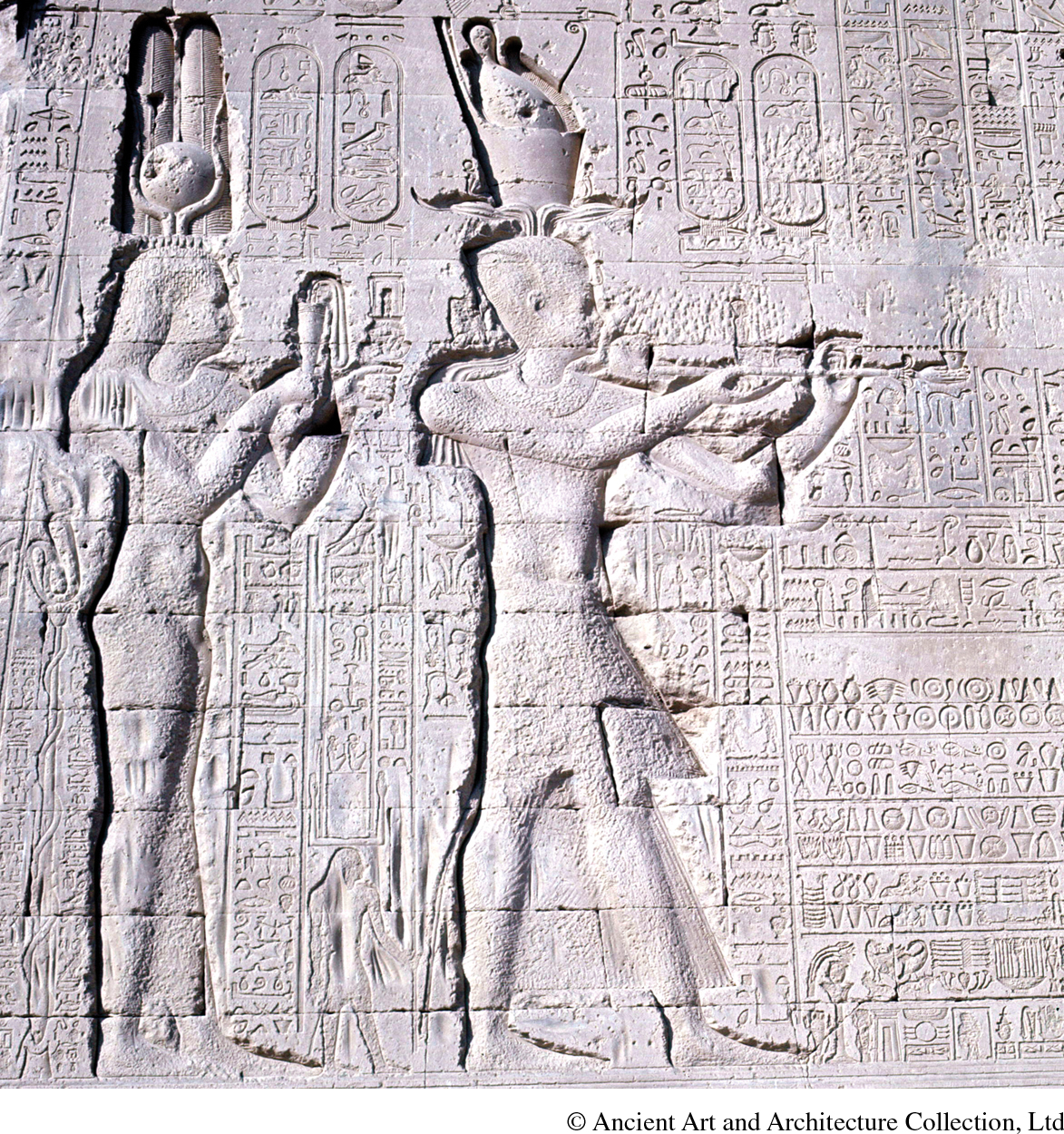The End of the Hellenistic Kingdoms
The End of the Hellenistic Kingdoms
All the Hellenistic kingdoms eventually lost their riches and power, mostly through internal rivalries in their ruling families. Thus weakened, they could not prevent takeovers by the Romans, who over time intervened forcefully in conflicts among kingdoms and Greek city-states in the eastern Mediterranean.
REVIEW QUESTION How did the political and social organization of the new Hellenistic kingdoms compare with that of the earlier Greek city-states?
The Roman interventions caused wars. Rome first established dominance over the Antigonid kingdom by the middle of the second century B.C.E. Next, the Seleucid kingdom fell to the Romans in 64 B.C.E. The Ptolemaic kingdom in Egypt survived a bit longer; by the 50s B.C.E., however, its royal family had split into warring factions, and the resulting weakness forced the rivals for the throne to seek Roman support. The end came when the famous queen Cleopatra VII, the last Macedonian to rule Egypt, chose the losing side in the civil war between Mark Antony and the future emperor Augustus in the late first century B.C.E. An invading Roman army ended Ptolemaic rule in 30 B.C.E. Rome then became the heir to all the Hellenistic kingdoms (see Mapping the West, page 139). (See “Contrasting Views: Roman Attitudes toward Cleopatra VII, the Last Hellenistic Queen.”)
